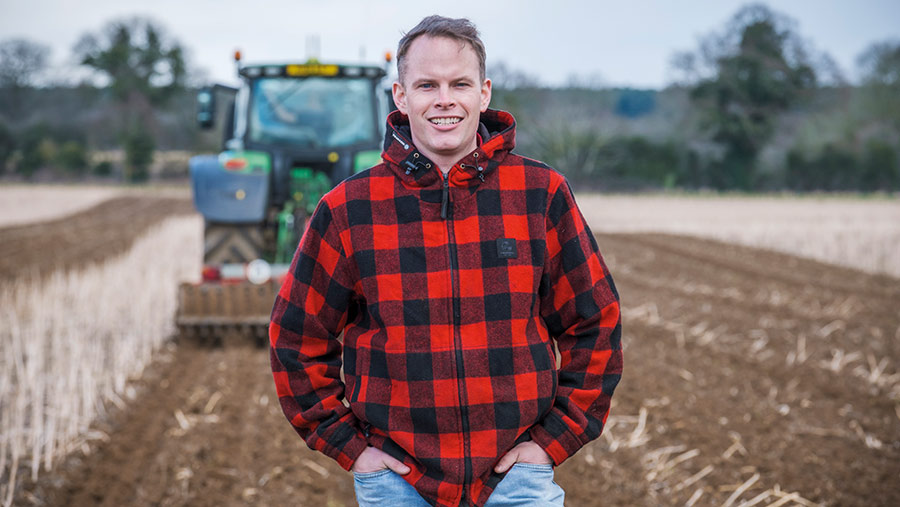Farmer focus: Good rotation is key for weed control in no-till system
 © Jason Bye
© Jason Bye The weather gods have forgotten Norfolk is supposed to be our driest county.
My weather station has recorded 356mm of rain from the start of the year up to 15 May.
In comparison, the local Met Office weather station says the 30-year average for the same period is 209mm. That is some difference.
See also: Growers invited to sample grassweeds in farmer-led project
Despite the difficulties wet weather has caused with planting spring crops, our winter crops and spring barley look as well as ever.
Thankfully, the no-till and RTK-managed traffic system has allowed us to continue with timely spraying and fertiliser applications without delay or tramline damage. The same cannot be said for our ploughed or min-tilled land.
However, the direct-drilled spring barley fields have experienced a sudden flush of weeds.
In year two of our no-till system it is apparent that we are more reliant on good rotation for weed control and certainly, in the short term, this has manifested in more herbicide use.
I believe this is the elephant in the room for regenerative farming, or perhaps even UK arable agriculture.
Our policymakers are so focused on the single issue of soil health, guiding us towards the holy grail of no-till, they overlook our deeper-rooted problems.
We eventually finished drilling sugar beet on 3 May and a trial sunflower field on 5 May.
This concludes our crop planting for the season, so now we turn attention to Countryside Stewardship.
The first job is mowing AB15 legume fallow fields where blackgrass is beginning to head.
This encourages the clover and ryegrass to outcompete the weed as it regrows. It has worked well in previous years, but I fear this season will be tricky, with wet conditions making travelling difficult.
I do enjoy what Countryside Stewardship adds to our farmland. My favourite option is the AB16 autumn-sown bumblebird mix.
Ours is now in full flower and looks a picture. I have used this option and AB8 to link the landscape features on our farm to provide a nature super-highway.


